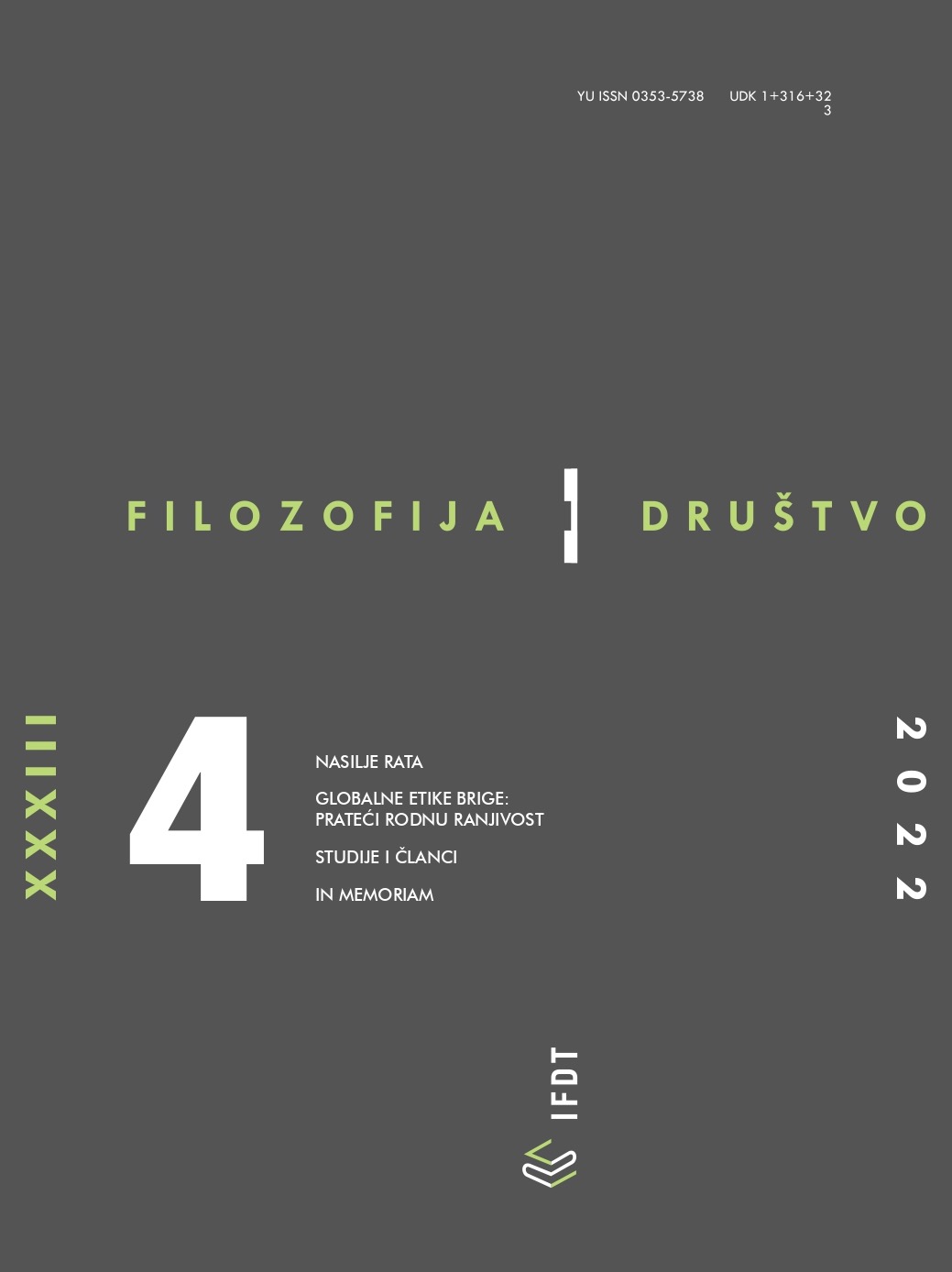КАНТОВСКОЕ ОБОСНОВАНИЕ ЛИБЕРАЛИЗМА КАК СОЦИАЛЬНАЯ ТЕОРИЯ: ВОЙНА, ПРАВО, МОРАЛЬ
Kant’s Substantiation of Liberalism as a Social Theory: War, Law, Morality
Author(s): Oleg NOGOVITSINSubject(s): Law, Constitution, Jurisprudence, Ethics / Practical Philosophy
Published by: Institut za filozofiju i društvenu teoriju
Keywords: theory of liberalism; war; civil war; law; morality; state; sovereignty
Summary/Abstract: In this article, we propose a consecutive analysis of Kant’s concept of liberal thought and of the basics of institutional structure of liberal community, which shape an immutable body of all possible logics of development of social practices and thinking within the frame of the liberal world order. For the purposes of the study, the methodological premise is that Kantian metaphysics of morality, law and religion can be considered one of the primal historic forms of social theory. The initial point of analysis is the concept of war (and enemy) in Kant, showing that the form of variable aporia and interpretation of epiphenomena of individual and collective consciousness, constitutes a sui generis constructive reverse side of all types of practice, to which Kant gives transcendental grounding. It is by the mentioned methodological specificity that we prioritize the attention paid to the formulations of Kant’s deductions of law and morality. As a whole, the given substantiations are construed phenomenologically as specific forms of experience which are constitutive of moral, legal and religious consciousness.
Journal: Filozofija i društvo
- Issue Year: 33/2022
- Issue No: 4
- Page Range: 715-748
- Page Count: 34
- Language: Russian

